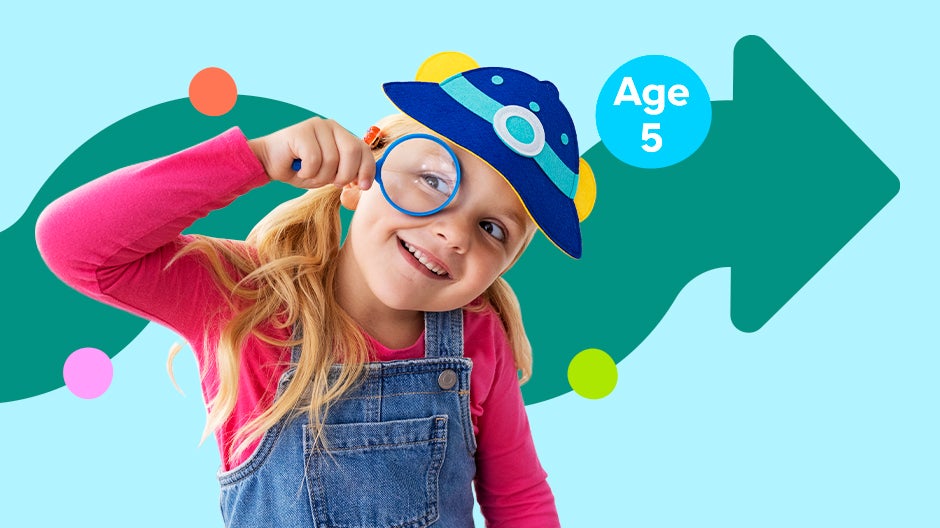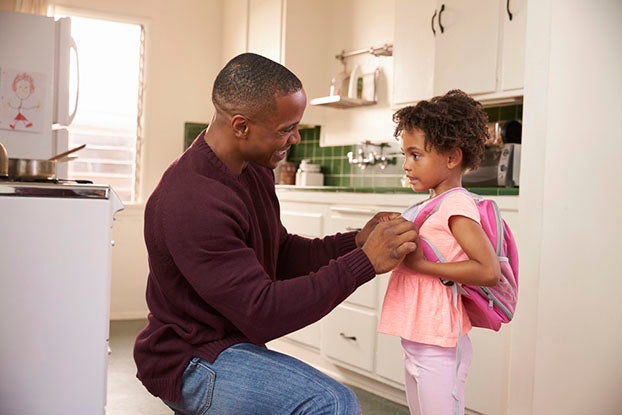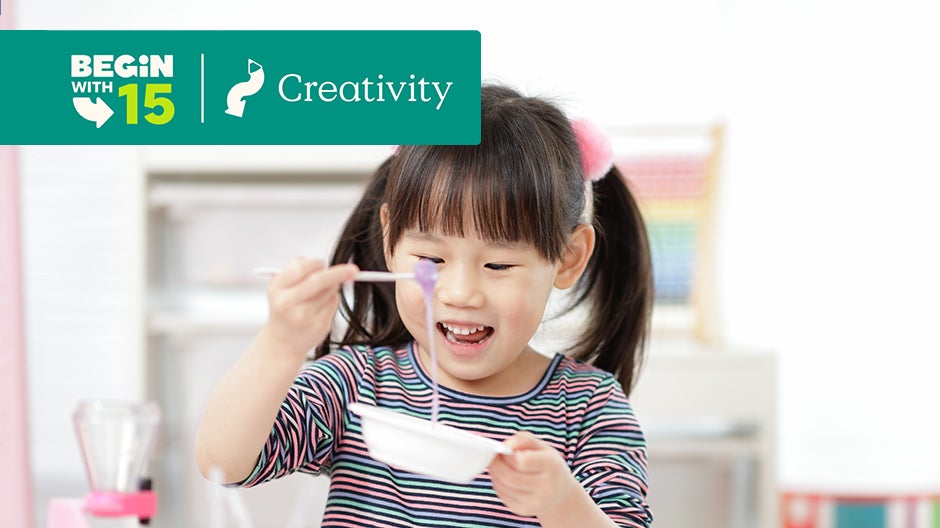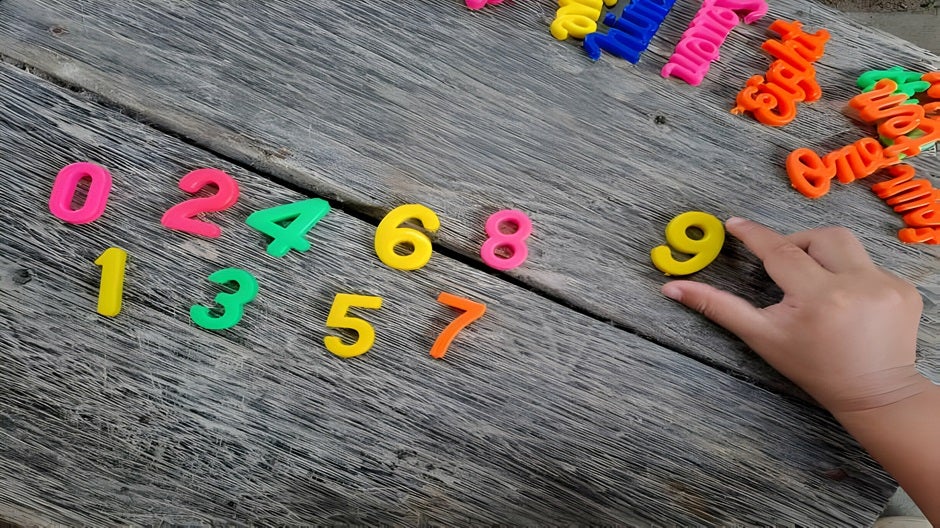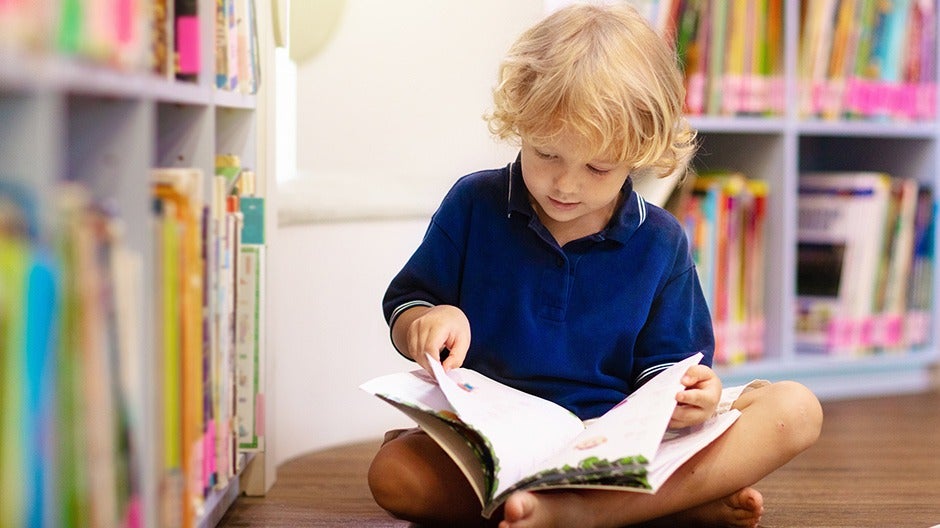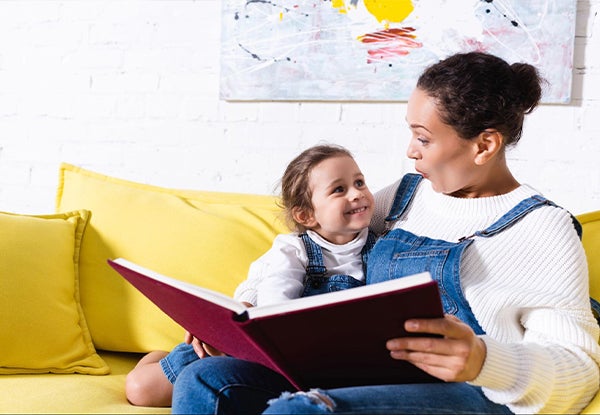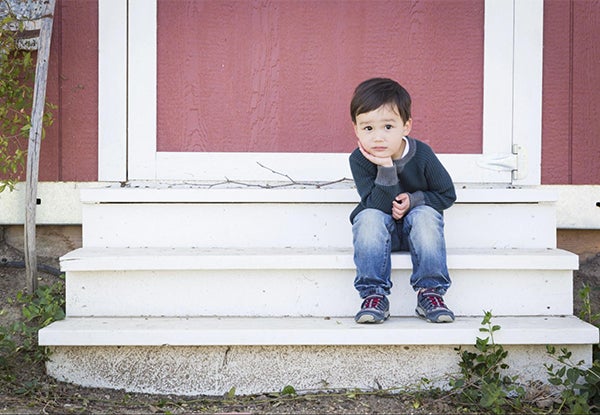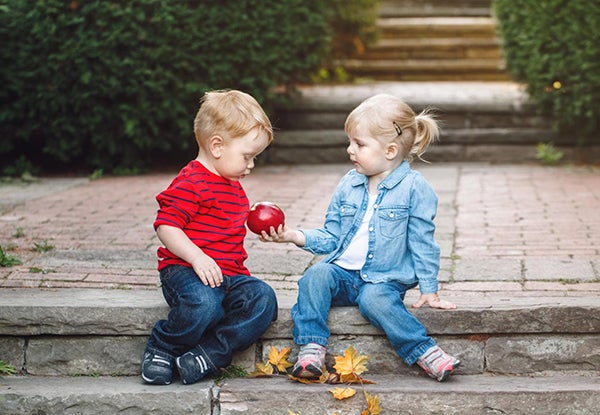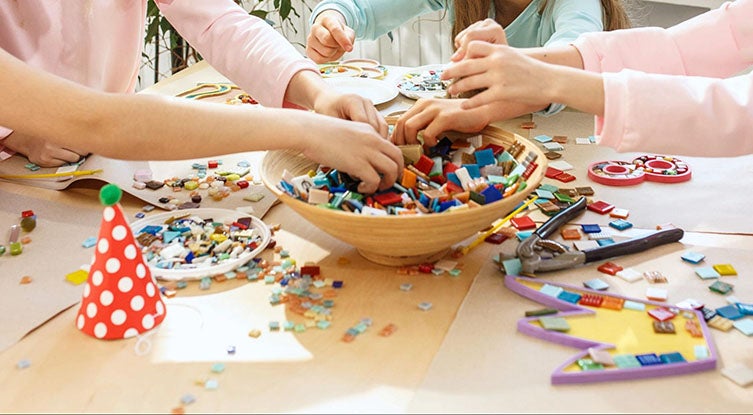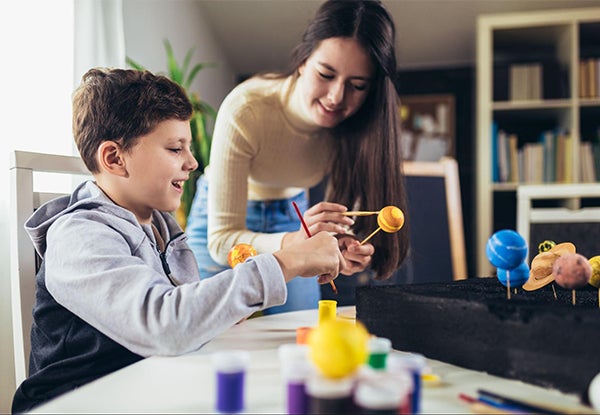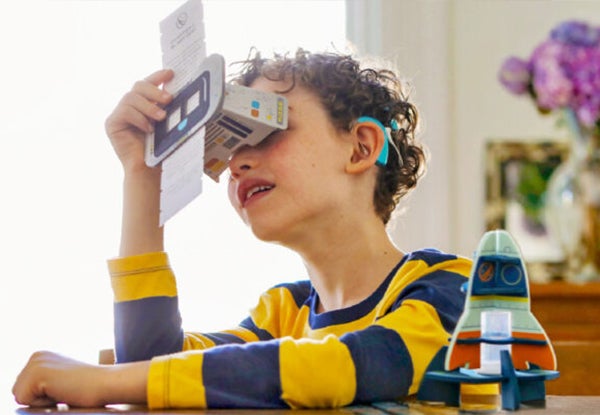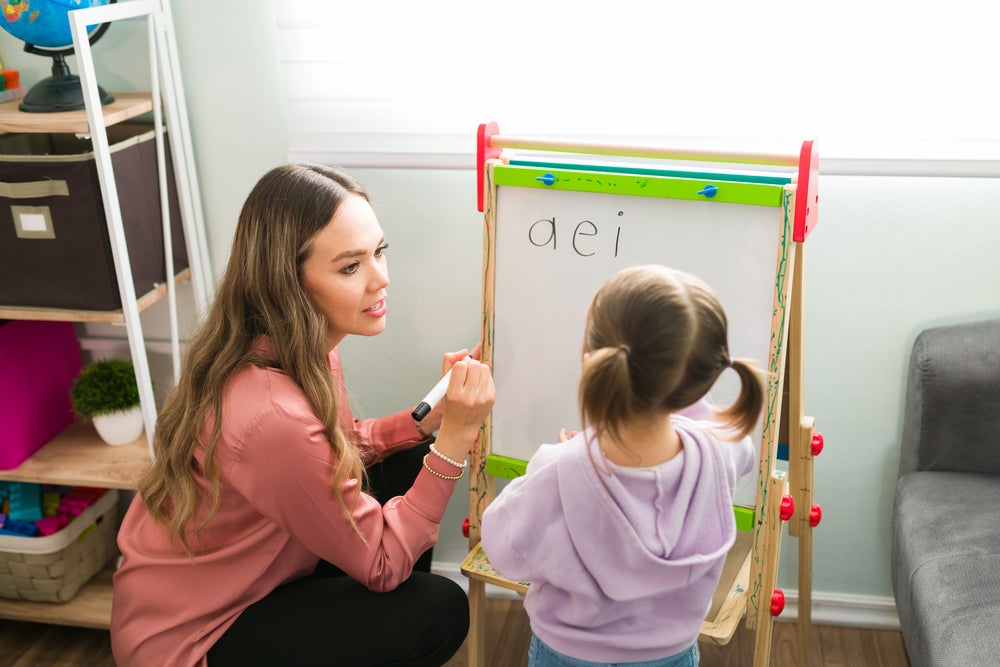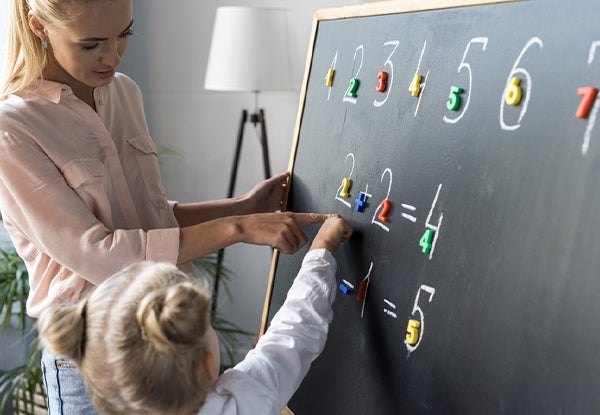Five-year-olds typically go through some big changes, which can result in some big feelings. They’re in an incredibly rapid time of change and development, and many are gearing up for major milestones such as attending kindergarten (or adapting to a different classroom setting).
While 5-year-olds are better at expressing how they’re feeling than they were at previous ages, they might be struggling with intense emotions associated with changes to their routine, anxiety about making new friends, and more. Those emotions can lead to some surprising behaviors, like sleep regression, outbursts, or clinginess.
Having said that, 5-year-olds are also developing their sense of humor and delighting you with their new inventions and ideas, and their brains are growing and forming new neural connections at an astonishing rate.
The Short Cut
- Five-year-olds are developing important skills, such as understanding symbol systems that allow them to read and exploring friends’ interests to strengthen relationships
- Developmental milestones for 5-year-olds show up in the 5 C’s: Creativity, Critical Thinking, Curiosity, Character, and Core Skills
- For 5-year-olds, the 5 C’s can be supported through play and simple, everyday interactions
- Parents can help 5-year-olds develop the 5 C’s through a combination of guided play, artistic activities, social interactions, and reading
At Begin, we know that brain growth is just one piece of early learning. Your child is unique, multi-faceted, and has limitless potential. Because our mission is to give every child their best start to achieving their fullest potential, we focus on skills critical for school and life success.
We’ve simplified those skills into the Begin Approach through 5 C’s: Creativity, Critical Thinking, Curiosity, Character, and Core Skills.
So what do those C’s look like for your 5-year-old? Let’s take a look!
Creativity
Creativity is a child’s ability to come up with solutions to problems, invent new ideas, and express themselves in novel ways. Most young children are naturally creative, and chances are your child is no exception! Our job as parents and caregivers is to foster that creativity throughout their childhood to help them become creative adults.
Your 5-year-old’s creativity might look unexpected, such as using a toothbrush to comb their hair if they can’t find their hairbrush (because a brush is a brush, right?). While we may not always agree with or like their “solutions,” your child’s ability to think outside the box is a wonderful sign! Allowing them to explore solutions to see how well they work or don’t work is a great way to help them feel empowered and to encourage future problem-solving.
At this age, you’ll probably notice they can fix or extend simple patterns, whether visual (blue, red, blue, red, blue, ?) or auditory (clap, clap, stomp, clap, clap, stomp, clap, clap, ?). The ability to detect (and repeat, extend, or fix) patterns is a sign that your child’s brain is organizing information in important ways.
Patterns help us make sense of the world throughout our lives. Creativity often involves recognizing, and in some cases making or breaking, patterns (think of your favorite song and how a series of notes and words repeats, and sometimes changes, within it). As they get better at working with patterns, your 5-year-old lays the foundation for more complex creativity down the road.
Critical Thinking
Critical thinking includes two elements: the ability to make decisions and analyze information, and a broad set of processing skills often referred to as executive functions. These skills help people make good decisions, understand rules and consequences, and identify trustworthy information versus untrustworthy information.
There is a LOT of critical thinking development happening for 5-year-olds! Given how much kids are growing at this age, it’s important to know what to look for and how to foster cognitive skills.
You’ll probably notice your child’s improving (and sometimes surprisingly sophisticated) ability to answer questions about a story after you read a book together. Examples of this might include what the big lesson in the story was, how the main character felt at a particular moment in the story, or why the story ended the way it did.
Questions like this require your child to not just hear (or read) a story, but to think about what the words mean together and identify big themes and lessons. This ability to comprehend things within text is important for later literacy skills such as comparing and contrasting, writing book reports, and learning about new topics through reading.
Another element of critical thinking is your child’s growing ability to follow simple rules in increasingly complex collaborative or competitive games. Understanding, remembering, and following rules (especially if you have to ignore distractions or avoid immediate gratification) is an important aspect of developing executive functioning skills.
Curiosity
This one probably feels obvious! By age 5, kids have been asking approximately a question a minute for several years—which really adds up! By this age, children will be well versed in asking ALL the different types of questions (“how,” “why,” “who,” “what,” and “where”), putting you on the edge of your seat wondering what they’re going to ask next. For 5-year-olds, questions remain a primary tool for understanding the world, which makes sense given how many new things they’re encountering—and how much more they’re understanding about familiar places and routines.
Because of that, curiosity isn’t something we usually need to “teach.” Our job is to encourage their natural curiosity to support other knowledge development and create a lifelong love of learning. Curious 5-year-olds will test boundaries and experiment during play to learn about consequences, patterns, and how things are related or unrelated. Unstructured, free playtime is a critical part of fostering your child’s curiosity!
At this age, you might consider deconstructing an old appliance with your child to examine the parts. Building can be fun too! Many 5-year-olds enjoy putting together models of objects, such as model planes or trains, as a way to learn how they work. Both building and taking apart are important aspects of exploring the world.
As they explore, your child’s interests may extend into new topics. This is great (even if it’s hard to keep up with what they like!), as it reflects your child’s growing exposure to new things and a desire to seek novelty rather than stick to what’s familiar. Your child’s new interests might also come from being influenced by their friends and wanting to know more about what their friends are interested in—which is part of Character development and the process of making and keeping new friends.
Character
Children who develop Character, or social-emotional skills, in their early years tend to do better in school and life, including having more positive relationships with teachers and friends. Five-year-olds develop some key Character skills, including a growing sense of empathy and more nuanced emotions-related vocabulary. Given the big developmental milestones kids reach during this age, like starting formal schooling, you may notice your child expressing emotions or behaviors related to changes in their routine!
Your 5-year-old will also likely start to develop and maintain friendships that go beyond simply playing with peers of the same age. They might become more selective about who is their friend versus who isn’t, and they may start asking for play dates or other opportunities to interact with their friends outside of their normal routine.
This is an exciting time! These new friendships will stretch your child’s ability to communicate their feelings, collaborate toward common goals (such as building a sand castle at the playground), negotiate when conflict inevitably arises, and appreciate that others have feelings that may differ from their own.
You can even highlight how you and your child sometimes have different feelings about the same thing. For instance, you might feel excited to meet up with a new friend from your child’s kindergarten class on the weekend, but notice your child feels apprehensive about the meetup. You can highlight how you both are experiencing different emotions about the same event, and that both of those feelings are valid.
Your 5-year-old will also likely display a growing awareness that behaviors in some contexts, such as a park, are not appropriate for other contexts, such as a library or a church. This ability to regulate their behaviors is a tremendous step towards being able to navigate a range of social situations and environments with ease.
Core Skills
The need to develop foundational learning skills, such as reading and thinking mathematically, is never going to go away, even as we better understand the importance of the other C’s. Your 5-year-old needs a strong base upon which to develop the skills they need to thrive in this ever-changing world. Core Skills, like counting, reading, writing, and background knowledge on a range of social and scientific topics, represent a critical part of that strong base.
Luckily, a LOT of Core Skills can (and should be) supported through playful everyday experiences. Your 5-year-old is likely learning the names of different shapes, and you can go on a “shape scavenger hunt” while you’re driving or out for a walk—look for all the shapes you see in the world around you and see how many you can find. Or find all the shapes that you don’t know! For instance, a stop sign is an octagon, and you can talk about how “octo” means “eight” like an “octopus” has eight arms.
It’s also very likely that your 5-year-old is ready to sound out words and read simple books. Reading requires an incredibly complex set of skills and isn’t a single thing that happens at the flip of a switch. In order to read, your child needs to:
- Control their eye movements
- Ignore distractions (such as a noise in the other room or an itchy sock)
- Recognize a specific squiggle as a letter
- Bring to mind the sound that a letter makes and how that sound might change in the context of other squiggles/letters, such as a “bossy ‘e’” making a vowel take on a new sound
- Move their mouth to articulate those sounds
- Process what the words mean, so they’re not just saying them but understanding them
And those are just a few of the skills required! No wonder early readers take their time!
Fortunately there are many fun ways to support early literacy, such as reading aloud together, inviting your child to put on a puppet show (in which they get to make up a story), suggesting they “write” their own book (using invented spelling, dictating to you, or illustrating their ideas), and encouraging your child to read something they’re interested in to one of their stuffed animals or a family pet. All of these activities are important and exciting parts of developing your child’s Core Skills.
Learning Begins with Play
As you can see, there is a LOT going on when a child is 5 years old, and everything we’ve described above begins with—and continues to be supported by — play.
To learn more about your 5-year-old’s development and how to help them across the 5 C’s, check out our other parent resources.
